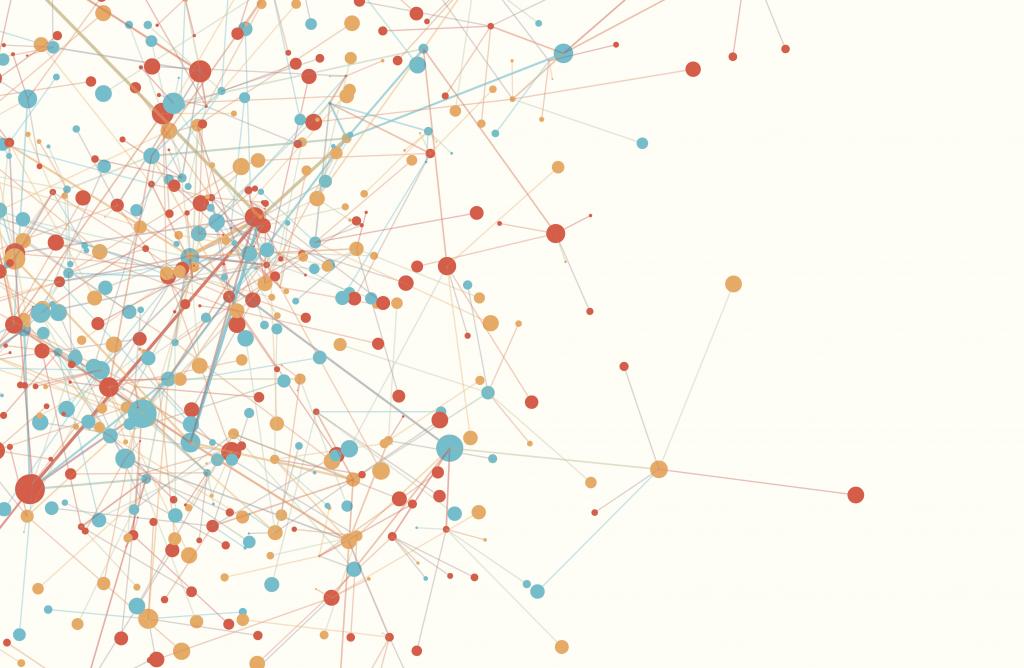On 5 April 2018 David Sylvan, Professor of International Relations/Political Science and Director of Research, Jean-Louis Arcand, Professor of International Economics, and Daniele Rinaldo, PhD Candidate in Development Economics, presented their co-authored paper, titled “A Simmelian Model of Social Type Trajectories,” at the 59th Annual Convention of the International Studies Association (ISA) in San Francisco, California. The paper basically argues that having the distant past and future count as much as the present in status valuations leads to certain careers or biographies being much more common than others. More details in this interview with Professor Sylvan.
Could you give us a brief summary of your conference paper?
The germ of the paper comes from a conversation I had a few years ago with Oliver Kessler from the University of Erfurt in Germany. We realised that both of us were big fans of the classic German sociologist Georg Simmel, but that Simmel’s work seems to have been neglected in international relations. Therefore, we decided to organise a panel on the subject. By the same token, I should add that I have been interested in Simmel for a long time, going back to my first book published decades ago. To make a long story short, what I want to do is to play around with the idea of “Social Types” in Simmel. There are certain kinds of individuals who exemplify what he considers as social phenomena. For instance, he talks about the nobility, the adventurer, the miser, the poor. I thought that it would be interesting to use one or more of those social types as ways to revisit the question of the relation between social form (i.e., self-bounded interactions typical of certain social groups) and social type.
In social science, we have concepts such as roles that have been around for seventy–eighty years. This has been always a little bit vague because it was never clear how people went back and forth between roles, or “developed” a role over many years. In short, the idea is to revisit the concept of social type to show how you end up, specifically, with claims about what I call non-myopia: events from the distant past or the long-term future can count, qua status, every bit as much as events now, or in the recent past, or in the near-term future, in terms of one’s biography or career. We decided to take a look at the question: if status is determined non-myopically, would there be particularly common career trajectories by individuals exemplifying a social type, or would they vary with roughly equal probability between different trajectories? The original idea was to evaluate this, precisely, by looking at social types such as the statesman in Great Powers. However, the data for their interactions, as well as for the status valuation of those interactions, are just not dense enough to be useful. So instead we did two things: first, to look at the actual and idealised accounts of a far denser set of interactions, namely those pertaining to nobles and knights in the European Middle Ages and trying to model those computationally; and second, abstracting from specific social types to a much more general, and much more stripped-down, model of the influence of non-myopic valuation on which, if any, trajectories are more frequent than others.
What kinds of reactions did the paper get in the panel?
To be honest, not very many because it was not the best-structured panel. To get useful feedback, we would have had one or two types of people present: either people who really know about Simmel and/or the European Middle Ages, or people who are happy to play around with certain types of formal models. Neither type of people was present. Yes, we did get some interesting questions and comments, but it was nowhere near as much as I had hoped for. On the other hand, these conferences, qua papers, are only partly about the actual panels. They are useful principally as a deadline or a way to force you to get something done by a certain date – then, having written something, to revise it and send it out for publication. That’s how we really get feedback.
You co-authored the paper with a professor, Prof. Jean-Louis Arcand from the Department of International Economics at the Institute, as well as with a PhD candidate in Development Economics, Daniele Rinaldo. How is it working with people from a different discipline?
For me, it is wonderful. You should know that I and Prof. Arcand have already written a few papers together. For instance, we wrote a paper for the American Political Science Association on the relation between careers and modern China for military officers and party cadres and the ways that each can help out or not help out the other one. Secondly, prior to that paper, we wrote another paper starting from Daron Acemoglu’s work and going beyond it about the relevance of colonial past in terms of contemporary development. Also, Prof. Arcand and I co-taught a course here at the Institute a few years ago. So, one of the great advantages of being in a place like the Graduate Institute is to favour multidisciplinarity as there is always encouragement to work with other professors and, as in the case of Daniele, graduate students. Even though each of us has a different perspective, we find it very useful to trade off ideas with each other.
Lastly, could you share your impression on the ISA 2018 Annual Convention with us?
There are lots of things people get out of the convention over and above papers: people set up future collaboration or meet to go over work they’ve done together; people talk to publishers and see what others are working on; and of course, colleagues, current students, and former students catch up with each other. I certainly do each of those things, and they’re worthwhile: these kinds of conferences, in a sense, are large-scale gatherings where many people pursue lots of different goals. That said, from an intellectual point of view, I see the ISA as a victim of its success. When I started going to ISA conventions, back when the earth was still cooling, it was possible to bounce back and forth between all the panels in a given time slot: there were no more than 4 of them. Now, of course, that’s out of the question: a given time slot has perhaps 25 panels, with each panel having up to 5 papers or even more round-table-ists. That means, inevitably, that the convention is simply a holding tank for dozens and dozens of “invisible colleges.” If one is knowledgeable about a particular subfield, one can actually learn something from going to panels in that subfield and schmoozing with the people at those panels. However, the flip side of that is, understandably, that most participants don’t know what’s going on in other subfields. So what we’ve lost, in a sense, is the ability, or at least the incentive in the convention, to be theoretically and methodologically multilingual, and that’s a pity.
Interview by Buğra Güngör, PhD candidate in International Relations and Political Science.



